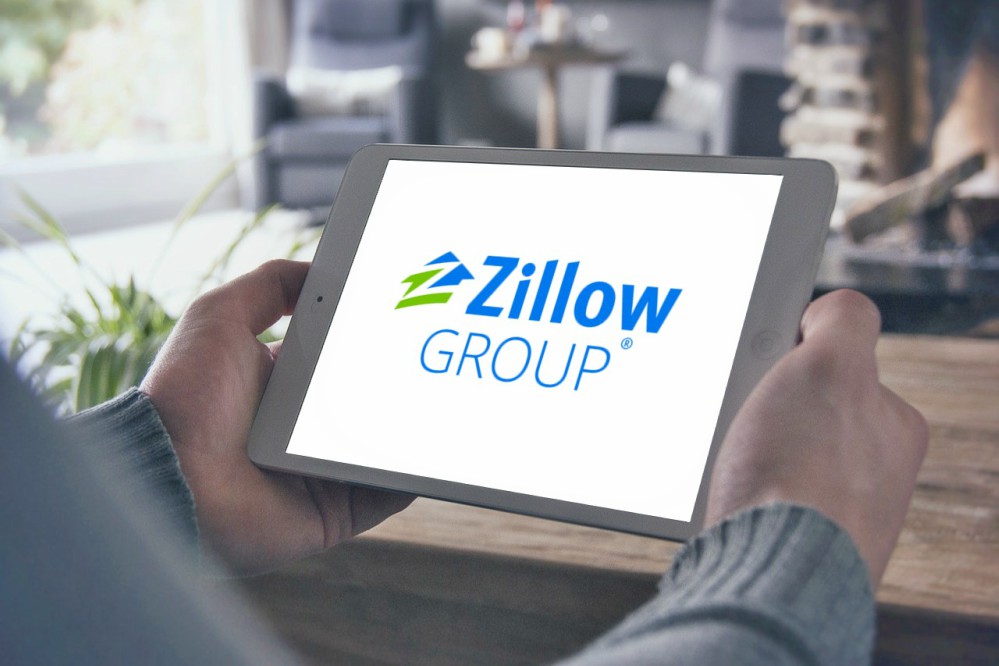
SEO methods under fire
Last month, we reported that the debate over third party real estate sites’ SEO tactics has been renewed as listing syndication rules change and as various brokers across the nation pull their listings feed from the third party sites. The scene is changing.
For years, third party real estate media sites have been under scrutiny by SEO experts for using what some call “questionable tactics” as they are accused of hurting real estate brokerages’ ability to achieve search engine visibility for their own websites. VHT Visual Marketing Services calls the listing sites’ methods “black hat” tactics, and is fighting against what they say is an injustice.
VHT Chairman, Brian Balduf opined, “Brokerages are tired of being blocked from search engine results due to the questionable tactics commonly used by third party aggregators such as Zillow, Trulia, Realtor.com, and Yahoo. Brokerages provide their listings for free, and in return, the aggregators commonly insert ‘no-follow tags’ on the links back to the broker’s websites. The ‘no-follow’ tags effectively tell the search engines to ignore the actual source of the listing data. It’s dirty pool.”
Defending the methods
Deeply entrenched in real estate, Jesse Friedman has a unique point of view in his role as President of BrokeragLeader.com which offers brokerages a “complete online solution for generating and tracking leads,” which led to his founding of Diggsy.com, “which aims to be the simplest and fastest Nationwide real estate search on the internet.” Friedman serves real estate professionals, aiming for their websites to rank highly, meanwhile also understanding the role of a third party real estate site, having founded Diggsy. Friedman explains to AGBeat exclusively his position on the debate about SEO tactics from his unique perspective.
Cutting exposure
Friedman echoes what many say is the top attraction to the third party real estate sites, noting that “Zillow having 24 mil visits in October means if your hiding your listings from them and other third parties, you are severely cutting exposure to potential buyers.”
“The goal of an agent should be to sell their clients home at the highest and best price, not worry about gaining views on their own site or trying to obtain both sides of the transaction (which has ethical implications in itself),” he added.
It’s not “black hat”
Much controversy surrounds how third party real estate search sites treat listings. Friedman explains, “The big 3rd party Syndication websites, as well as ours, Diggsy.com do not engage in “Black Hat” techniques. Adding a “nofollow” tag to a link is standard practice and does not devalue the site being linked at all.”
Friedman adds, “If anything, current research shows that a well rounded link profile, which includes nofollow links is essential to proper search engine optimization and marketing. The reality is that these big sites get traffic because they simply offer tools that people like to use and remain an independent source of information for people that are undecided on what agent or brokerage to use.”
Competing with the “big boys”
“Furthermore,” Friedman said, “agents and brokerage can compete with the “big boys”. Our proprietary Brokerage Leader platform and SEO that we offer brokerages consistently garner top search results with some clients getting as many as 20,000 leads over the past couple years with thousands of unique visitors a day.”
Fridman notes, “As a listing agent, you have intimate knowledge of your listing, target buyer and local knowledge. Use that to your advantage, blog about your new listings and become an expert in your community. This will help you rank better, not removing your listings from 3rd party websites.”
What if third party sites went away?
“Diggsy and our competitors put a ton of effort into our online marketing and presence,” said Friedman. “If we were gone, brokerages would still be competing with each other for rankings. The fact of the matter is it takes the right approach and ultimately hard work. Get a good website, utilize proper search engine optimization and marketing and pound the digital pavement and you will get the results you are looking for.”
The American Genius is news, insights, tools, and inspiration for business owners and professionals. AG condenses information on technology, business, social media, startups, economics and more, so you don’t have to.







































Jesse Friedman
February 6, 2012 at 1:04 pm
If anyone was wondering about the "no-follow" issue, there is plenty of info out there talking about the value of these types of links including https://www.socialseo.com/blog/an-experiment-nofollow-links-do-pass-value-and-rankings-in-google.html – a good read if you are interested in this.
Ken Brand
February 6, 2012 at 2:02 pm
The notion that qualified buyers make their home buying decisions by visiting 3rd party aggregators is in my opinion, inaccurate, misleading and uninformed. At least in my market.
Yes, buyers all across planet earth visit the web (online real estate sites) to dream, entertain and educate themselves. When it comes time to seriously shop, the vast majority of qualified home buyers turn to a real estate agent to help them.
If the consumer has found properties online that they're interested in, they share their findings with their real estate agent, who then includes them along with other matching properties found in a detailed MLS search. Whether a buyer has visited all three of the current leaders (Realtor.com/Trulia/Zillow), or none of them, consumers rely on and expect their real estate agent to scour the well source of property data, the local MLS.
At the end of the day, hits and views are window dressing and hype designed to extract advertising and enhance your OWN listings advertising dollars from brokers and agents. The reality is, if a properly is supremely showcased in the local MLS, showing agents will include them in their showings, whether the properties ever show or viewed anywhere else online.
The excluding your sellers from our 3rd Party sites is a disservice to the seller is the same true sounding but untrue argument that newspaper, billboard, grocery store carts, park benches and magazine advertisers used to use. The guilt trip is sales spin, imo.
Having 3rd party aggregators display a sellers listing or not, does not effect the sellers selling price or days on market. Local market conditions and how the seller's property is positioned (price, terms, condition, location) relative to competing properties is what determines the seller's outcome. Of course it's the listing agents job to provide the intelligence necessary to positon the sellers property in a manner that accomplishes the goals of the seller.
As I understand it, the conversation rate for internet leads is generally in the abysmally low single digit range. If 3rd Party sites were such awesome exposure tools, the results would be much higher, wouldn't they? The "you're missing out on exposure, which hurts your seller" doesn't ring true when so few qualified buyers buy the property they inquire about.
As you point out, if the 3rd Party Aggregators disappeared we'd all be competing with each other instead of 3rd Party players. Exactly! Brokers and agents would be better served spending the millions of dollars currently spent on online position ads, zip code buys, enhancing their OWN listings and chasing strangers and tiny-tiny conversation rates, to create wow-worthy websites. If 3rd Party players disappeared tomorrow, the real estate industry would have millions of additional views to compete with and collectively millions of dollars to do it.
My 2 cents. I'm not a hater, but I'm not a believer either.
Michael Corley
February 6, 2012 at 10:54 pm
Ken, you hit the nail right on head.
Freidman can expound on the value he believes 3rd pty real estates sites provide brokers and agents, but the argument rings a bit hollow.
3rd pty real estate sites profit from the free content offered by users (brokers, agents and visitors) by selling views with small benefits to brokers.
Jesse Friedman
February 6, 2012 at 2:31 pm
Ken, you bring up some good points and by no means is there any replacement for the knowledge of a realtor. The internet serves as one of the means to find the right one and much of the time, customers are more comfortable using a site not tied to any one brokerage to start with.
This is just a discussion point. Lets say the 3rd parties were out of the game, I would imagine the majority of top rankings would then be had by National Brokers resulting in little to no exposure to the smaller firms. Obviously everybody is out to make a buck, at least the syndicators remain an independent resource for an agent or brokerage to utilize.
Jonathan Benya
February 6, 2012 at 3:41 pm
No follow tags aren't considered "Black Hat" in my book. Would I like the do-follow tag? Of course. Do I expect it? NO!!!
Let's be honest with ourselves. 3rd party sites create greater exposure. If you don't like the way they get that exposure, then you can choose to not support them, but what's more important here: Your exposure, or Your client's property exposure?
Agents have been ingrained with the concept of "your listing, your lead", but at the end of the day, is it more important to sell the listings you have or corner the buyers yourself?
Ken Brand
February 6, 2012 at 4:15 pm
I hear you Jesse, and I agree, we're all in a competition for profit. Here's another concern I have about 3rd Party players. They're in a competition too, not only with brokers and agents, but each other as well. The race is for relevance, and therefore views and visitors. The pool of potential viewers is finite, if we want more, we have to take it away from somewhere/someone else.
To succeed 3rd Party Players have to leverage disruption and destruction, they (just like brokers and agents) want to and have to become the go to source for real estate information.
I DO NOT want Trulia, Zillow or Realtor.com to become the authority on real estate. It''s already happening, CEOs for all three are routinely quoted on the National News (on and offline) as the experts in the real estate market (That's our fault, where are the Big Broker leaders; PRU, CB, KW, BH&G, Re/Max, etc., why aren't they taking the leadership role? Tsk-tsk) Consumers place more faith in a dumb ass and often wildly inaccurate Zestimate, which creates conflict and suspicion when factual and realistic analysis is presented by an informed real estate agent, than they do local experts. Why does this happen?
Because the consumer believes that an "Independent Source" provided the information so it must be true. After all TRZ isn't trying to sell anything. What the consumer doesn't know is that the "independent source", in this case Zillow, can promote themselves as unbiased and independent, and only trying to help the consumer, when it's really it's all and only about attracting viewers – accuracy, the truth and reality be damned. Although they are Independent, mostly unaccountable and perceived as unbiased, nothing could be further from the truth.
To top it all off, we send them everything they need (listings data, blog posts, Q&Q and our advertising money) to ultimately make brokers and agents appear less and less relative to real estate.
Another example is the agent/consumer so called Q&A opportunity. Seriously, how can an agent answer a consumers questions about the a real estate market in a state, city or neighborhood they've never worked in? It's sounds like a consumer friendly tool, but it's not. The consumer Q&A forums foster more misinformation, that wise advise. This practice continues because it has nothing to do with helping the consumer, it's about getting the brokers and agents (in addition to their listing data and advertising money) to add SEO in the form of content and the thin hope that maybe a contributing agent might generate a lead. It's a strategy to attract viewers away from wherever to them. So much for Independent and unbiased motivation.
I know. Shame on agents for answering questions they're unqualified to answer, and shame on 3rd Party players for pretending to help. It's an SEO, attention-getting sham for 3rd Party Players and a unanswered prayer for magical leads for brokers and agents.
It's the same play when 3Party players add all these wonderful social media share buttons so agent can disintermidate themselves by sending their audiences to a 3rd Party site. An on and on.
I don't fault 3rd Party players for their brilliant marketing and efforts to become the authoritative real estate source, I just think it's unwise to help them displace me.
And lastly, I'm not concerned about Broker competition, if worse came to worse, I could always affiliate with the winner. But you know what, I can't affiliate with Trulia, Zillow, or Realtor.com. They win by overshadowing all brokers and agents as the authority and go to place for real estate information.
Once they seize Top Of Mind Awareness at the Independent and unbiased Go To Real Estate Source, real estate agents will move down the food chain and become as important and relevant as Apple factory workers in China and the 3rd Party Players will be Apple. This has happend before, it's called the RELOCATION business – some fees are 40% now. It didn't start that way, but if you participate, you're doing all the work for peanuts because you let a 3rd Party player become the Go To authority for relocation.
Again, my 2cents. Just some thoughts on how I believe brokers and agents are clogging their arteries with hype and hope.
Alex Cortez - Wailea Realtor
February 6, 2012 at 6:12 pm
First, saying that no-follow links are 'black hat' SEO strategies is wildly inaccurate. It is completely normal and expected for webmasters to put the no-follow attribute on links as deemed necessary.
Now to the question regarding syndication and the value proposition of the big aggregators, not placing a listing on the 3 most visited real estate sites in the US is not only a disservice, but could be interpreted as negligent. Do I expect to sell a listing merely because it's listed on Zillow? Absolutely not. But although to me there's no quantifiable evidence that listing on Trulia, Zillow, Realtor, etc. will help in selling a listing, there's also absolutely no harm in syndicating.
Thomas Johnson
February 7, 2012 at 1:15 am
TRZ are just…infomercials. The Vegamatics of real estate. The brokers and MLS boards that sold their data for at best a pittanc, now realive they have been sliced diced and julienned, but wait there's more! Once they get investors' billions, their behavior will worsen as they must justify their fluffy valuations.